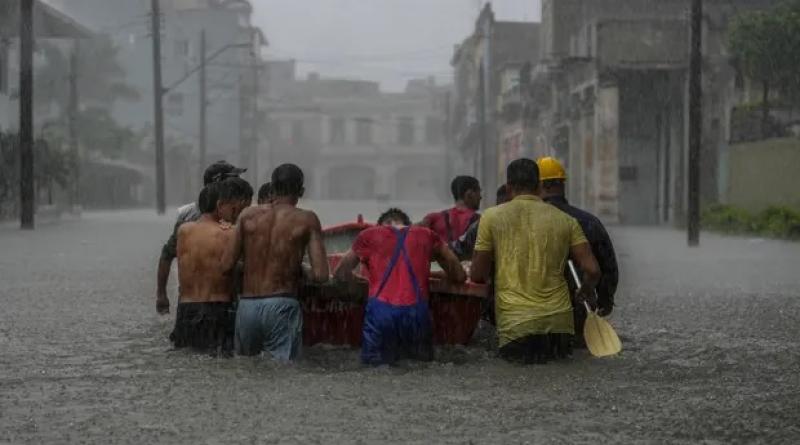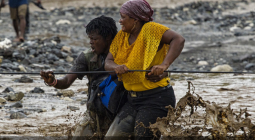Five crucial issues in fight to save planet – and what Cop27 did about them

This month’s environmental summit opened as our planet wilts under the impact of climate crisis. Here we examine five key areas and assess what success – if any – was achieved in Egypt
Keeping cool
A key Cop27 goal was to strengthen emission pledges made at last year’s climate summit in Glasgow. These are needed to ensure global heating is limited to 1.5C. No such commitments have been made in Egypt and most observers now conclude the world is destined to heat beyond this limit.
“I struggle to understand how anyone can continue to argue that 1.5C is still alive,” said James Dyke, from Exeter University’s Global Systems Institute. “We are now entering a much warmer and more dangerous world.”
This point was backed by Professor Kevin Anderson at Manchester University’s Tyndall Centre. “A year on from the Glasgow Cop26, a further 40bn tonnes of carbon dioxide has been spewed into the atmosphere. Another miserable facade of climate concern grinds to its ‘groundhog’ end.”
Loss and damage
As expected, Cop27 was dominated by arguments about climate compensation due to poorer countries. Global warming has been caused by industrial nations who used fossil fuels to enrich themselves. They should therefore reimburse countries who are suffering most from climate change. Such “loss and damage” claims include Pakistan’s recent $30bn bill for its flooding.
Hopes were raised that a deal might be in the offing but confusion surrounds details of the agreement. “The one bright spot at Cop27 has been a renewed seriousness around loss and damage, with hundreds of millions committed via various schemes,” said geographer Laurie Parsons, from Royal Holloway, London University. “Major concerns remain, however. The total funding required for adaptation is at least $2.5 trillion by 2030, so we are still orders of magnitude out.”
Nature
Global heating threatens to devastate habitats across the world, putting thousands of species in danger of extinction. These range from polar bears and tigers to monarch butterflies and sea turtles. However, the most spectacular threat is the one faced by the planet’s coral reefs which provide habitats for thousand of species. Planetary heating of 1.5C will see between 70 and 90% of coral reefs disappear. At 2C, 99% will be destroyed.
Threats like these will be debated intensively at Cop15, the UN biodiversity summit next month. However, no mention of the conference has been made in Egypt despite the strong link between climate change and species loss. On the other hand, a more positive note was struck by the arrival of Lula da Silva, the new Brazilian president, who pledged to do everything to save his country’s rainforests – in contrast to previous years’ gloom about their fate.
No more gas or coal
Hopes were raised at Cop27 that serious reductions could be made in humanity’s burning of coal, gas and oil, the major causes of climate change. This optimism sprang from India’s call for fossil fuel burning to phased down – though not phasing out, it should be noted. But the proposal has not led to major follow ups and the issue has not yet been resolved.
“It’s now about damage limitation,” said Professor Richard Betts of the UK Met Office. “We should all still work much harder to reduce emissions urgently to keep further heating of the planet as low as possible while also adapting to the changes we have already caused.”
Adapting to a warmer world
Minimising the heating of our planet by attempting to limit carbon emissions is only one way to tackle global heating. The world also needs to adapt so it is less vulnerable to the floods, droughts, sea level rises and crop disasters that lie ahead as the planet heats up. These adaptations would come in the form of better flood defences, seawalls, moving communities to higher ground and protecting road and rail links from storms and inundations.
Some improvements to previous commitments have been suggested at Cop27, with reports indicating a doubling of funding for adaptation could be agreed. However, scientists again warn that levels of promised fundings still lie well below the investments that will be needed in the near future.
cover photo Residents push a boat through a flooded street in Havana. Industrial nations are being asked to compensate those countries most affected by climate crisis. Photograph: Ramón Espinosa/AP





